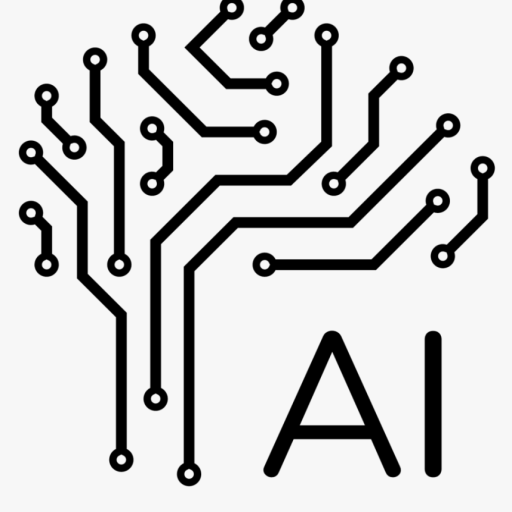As AI writing technologies continue to advance, the need for effective detection tools has become increasingly important. In 2024, a range of AI detectors are available, each with its own strengths and limitations.
The landscape of AI detection is evolving rapidly, with various tools emerging to address the growing demand for authenticity verification. This article will compare the most effective AI detector tools available, examining their accuracy, features, pricing, and use cases to help readers make informed decisions.
By exploring both premium and free options, we aim to provide a comprehensive guide that caters to different needs and budgets, highlighting the capabilities and limitations of each detector.
Understanding AI Detectors and Their Growing Importance
As AI writing tools become more sophisticated, the need for effective AI detectors has grown significantly. AI detectors are designed to analyze text for unsourced content, plagiarism, and originality, making them an essential tool for educators and content creators alike.
What Are AI Detectors and How Do They Work?
AI detectors are sophisticated tools that use complex algorithms to distinguish between human-written and ai-generated content. They analyze various aspects of the text, including linguistic patterns, syntax, and semantic coherence, to determine its authenticity. By doing so, they help maintain the integrity of content and ensure that it meets the required standards.
The Rising Need for AI Detection Tools in 2024
The proliferation of AI writing tools has created unprecedented challenges for educators, publishers, and content creators who need to verify the authenticity of submitted work. As a result, there is a growing reliance on AI detection tools to maintain academic integrity and ensure that content is original. Key factors driving this trend include:
- The need for academic institutions to maintain academic integrity and promote genuine writing skills among students.
- The requirement for content publishers and marketing agencies to distinguish between human and ai-generated content to maintain quality standards.
- The ongoing improvement of AI writing capabilities, which has made detection more challenging and necessitated more sophisticated tools.
By understanding AI detectors and their importance, we can better appreciate the role they play in maintaining the authenticity and originality of content in various industries.
How We Tested and Ranked the Best AI Detectors
Our team rigorously tested various AI detectors to determine the most effective ones. To ensure a comprehensive evaluation, we considered multiple factors that impact the performance and usability of these tools.
Our Testing Methodology
We employed a systematic approach to test the AI detectors, focusing on their ability to accurately identify AI-generated content. Our testing methodology involved assessing the detection capabilities of each tool, including their accuracy in distinguishing between human-written and AI-generated text.
The accuracy of the detectors was a primary concern, as it directly affects their reliability. We analyzed the results of various tests to understand how well each tool performed under different scenarios.
Key Evaluation Criteria
When reviewing AI detection tools, several key aspects were evaluated. These included:
- Accuracy in identifying AI content with minimal false positives
- User experience and interface design, focusing on intuitiveness and ease of use
- Feature set, including additional capabilities such as plagiarism detection and readability analysis
- Pricing and value, considering the balance between capabilities and cost
- Customer support and documentation, assessing how well each provider assists users in understanding and interpreting test results
For a more detailed analysis of AI detectors, you can refer to our comprehensive review on Ahrefs, which provides insights into the performance of various AI detection tools.
The Best AI Detector Tools of 2024
Educators and institutions are turning to advanced AI detector tools to uphold academic honesty. With a growing need for tools to maintain academic integrity, teachers now have access to a range of AI detectors specifically designed to identify AI-generated content in student assignments.
Overview of Our Top Picks
Our top AI detection tool recommendations include Winston AI, GPTZero, and Copyleaks, which offer reliable detection and user-friendly interfaces. These leading detectors support educators in promoting honesty in the classroom. We’ve evaluated these tools based on their detection accuracy, supported languages, and integration capabilities.
Comparison Table of Features and Pricing
Our comprehensive comparison table provides at-a-glance information about each detector‘s key specifications. The table includes:
- Detection accuracy rates and supported languages
- Pricing information, including free tiers and trial periods
- Essential features such as batch processing and API access
- User ratings and satisfaction scores
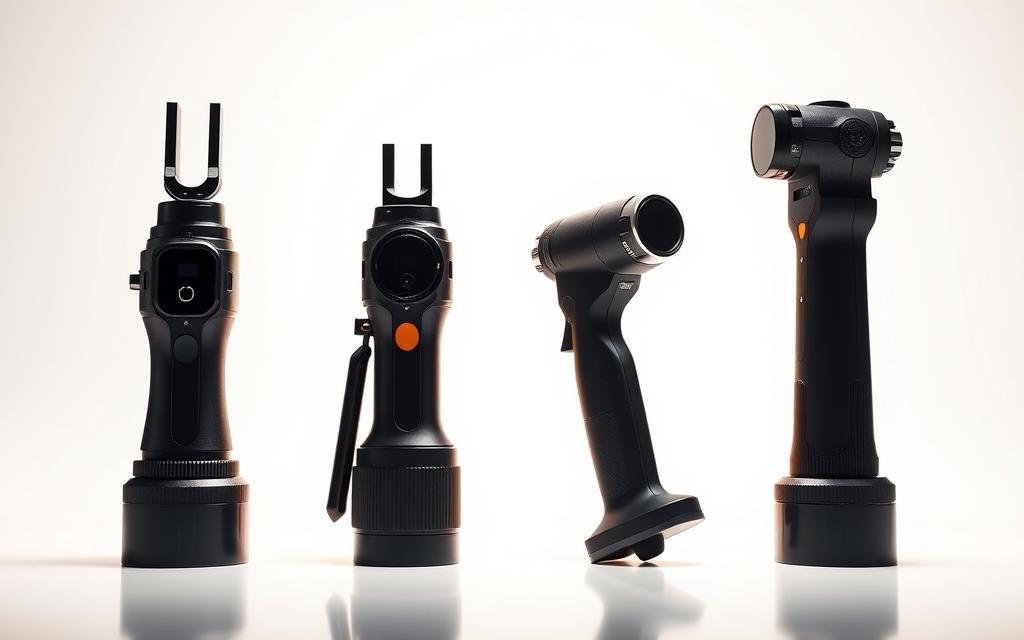
By comparing these tools, educators can make informed decisions about which AI detection solution best fits their needs and budget.
QuillBot – Best All-in-One AI Detection Solution
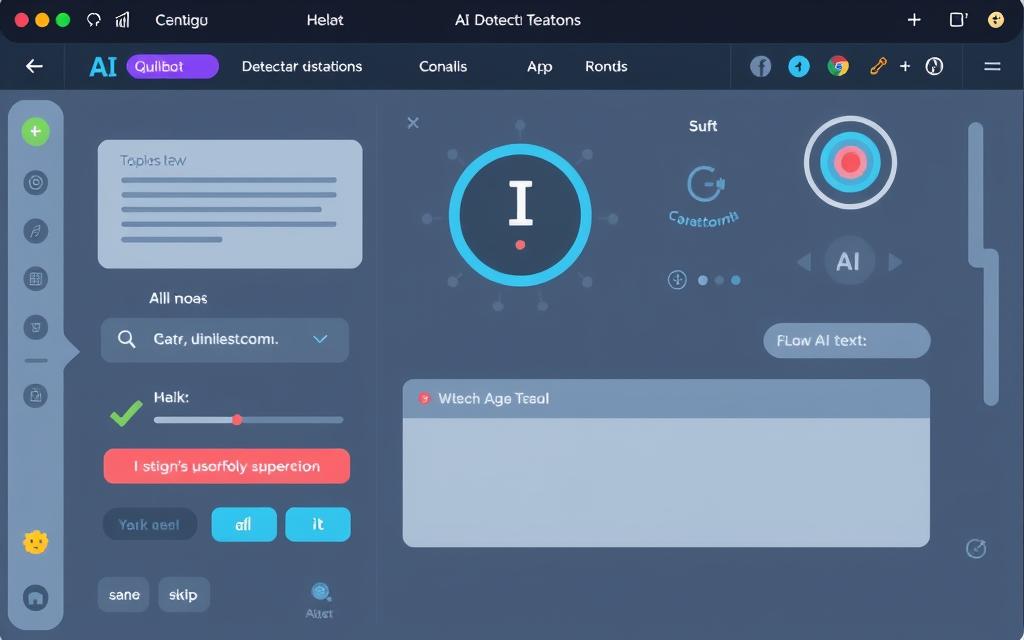
Overview
With its robust feature set, QuillBot emerges as a leading AI detection tool, designed to meet various content analysis requirements. QuillBot’s AI detection capabilities are complemented by a range of features that enhance its utility as an all-in-one solution.
Key Features
QuillBot offers a comprehensive suite of tools that simplify content analysis. Its key features include:
- QuillBot offers a free tier with access to basic AI detection features, allowing users to analyse up to 1,200 words without cost.
- The premium plan starts at $4.17 per month when billed annually, providing unlimited access to the AI detector and all other tools in the QuillBot suite.
- Enterprise pricing is available for educational institutions and businesses requiring multiple user accounts and advanced administrative features.
Pros and Cons
QuillBot’s AI detection tool has several advantages, including its ability to provide accurate detection results. However, users should also consider the limitations of the free version and the cost of premium features.
Pricing
When it comes to pricing, QuillBot is quite affordable, with the premium plan available for just $4.17 per month, billed annually. QuillBot also offers a 3-day money-back guarantee, allowing users to test the premium features without risk. The ability to pause subscriptions provides flexibility for seasonal users or those with intermittent needs for advanced detection capabilities.
The free version provides a taste of what QuillBot can offer, with access to basic AI detection features. For more advanced needs, the premium plan unlocks unlimited paraphrasing, advanced Grammar recommendations, and humanized text in advanced mode, among other features.
Winston AI – Highest Accuracy Rate
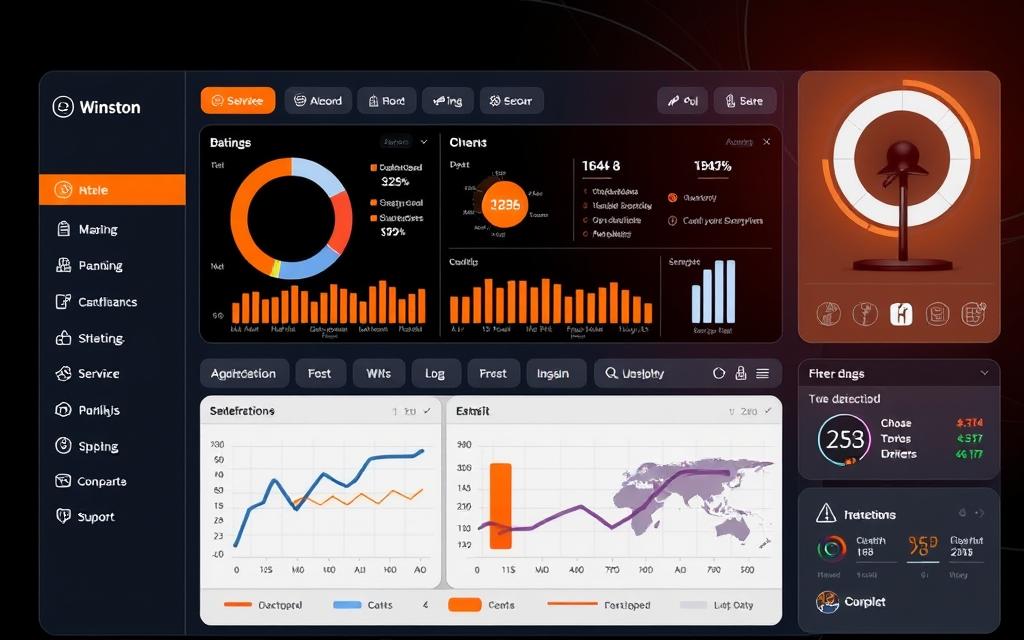
Overview
Winston AI is celebrated for its high accuracy rate, making it a top choice among AI detection tools. This advanced tool is designed to provide precise detection of AI-generated content, catering to various needs.
Key Features
Winston AI offers a range of features that make it stand out. Key among these are:
- Advanced scanning capabilities, allowing for up to 80,000 words of scanning in its Essential plan.
- Image detection, providing a comprehensive analysis beyond text.
- Writing feedback, helping users refine their content.
- PDF report generation, making it easier to review and share findings.
Pros and Cons
Winston AI’s strengths include its high accuracy and versatile features. However, users should be aware of the credit-based system for certain features, which requires careful management to avoid unexpected costs.
Pricing
Winston AI offers a 14-day free trial with 2,000 words of scanning capability, allowing users to test the service without providing payment information. The Essential plan starts at $12 per month, providing access to 80,000 words of scanning and other features. Higher-tier plans are available for professional users and organisations with greater detection needs.
Detecting-AI – Best for Multiple Language Support

Overview
Detecting-AI is a versatile tool that offers multiple language support, making it an ideal choice for global content analysis. It provides a comprehensive suite of tools designed to analyse content across various languages, thereby enhancing its utility for users worldwide.
Key Features
The Detecting-AI tool boasts an array of features, including AI Detector, Plagiarism Checker, Fact Checker, AI Humanizer, and Other AI Tools. These features enable users to not only detect AI-generated content but also to refine and enhance their content through tools like Sentence Rewriter, Paragraph Generator, and Rewording Tool.
Pros and Cons
One of the significant advantages of Detecting-AI is its free version, allowing users to analyse up to 5,000 characters without registration. However, like any tool, it has its limitations, and users may need to subscribe to access more advanced features and higher capacity analysis.
Pricing
Detecting-AI offers competitive pricing plans, including monthly subscriptions suitable for individual users, small teams, and enterprise organisations. Additionally, it provides access to API for developers, volume-based pricing for high-demand users, and educational discounts for academic institutions, making it a flexible detection tool for various needs.
Users can start with the free version and upgrade as needed, ensuring that they are not committed to a purchase without testing the service. The availability of credit-based systems for certain features also adds to its flexibility.
GPTZero – Best for Educational Institutions
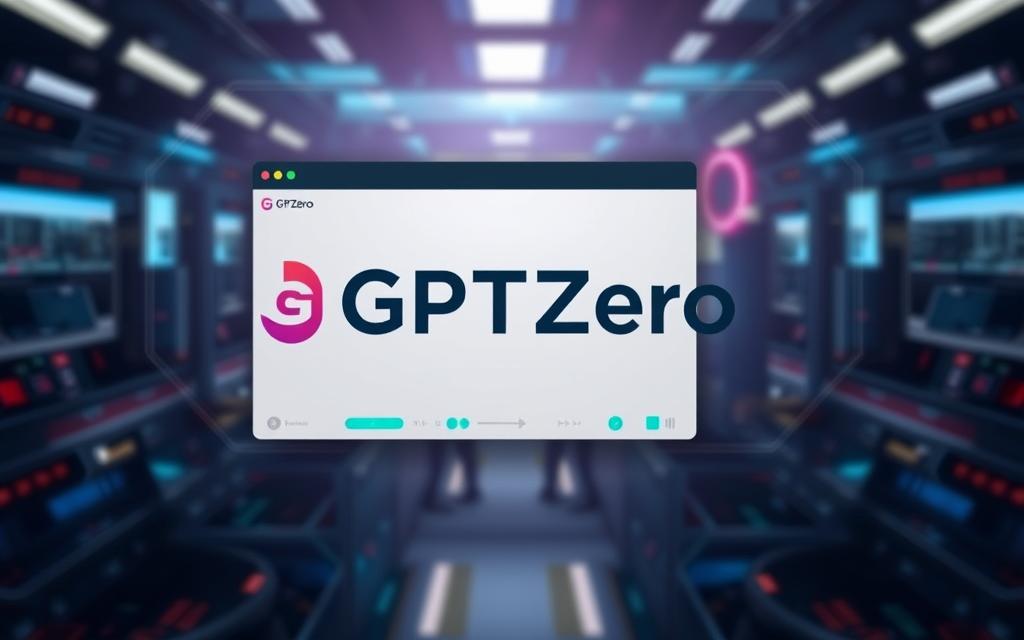
Overview
As an open-source tool, GPTZero stands out for its ability to detect AI-written content without relying on private datasets. GPTZero is trusted by educational institutions around the world for its high accuracy in detecting AI-generated content. It now includes an AI Text Verifier feature that enhances its ability to screen files and check originality.
Key Features
GPTZero offers several key features that make it an ideal choice for educational institutions. These include a free tier specifically designed for individual teachers, allowing them to process a limited number of submissions each month without cost. Additionally, GPTZero provides educational institution pricing at discounted rates, with options scaled based on student population and usage requirements.
Department and institution-wide licenses offer cost-effective solutions for larger educational organisations. All paid plans include priority support and access to the full suite of educational features and integrations.
Pros and Cons
One of the significant advantages of GPTZero is its high accuracy in detecting AI-generated content. However, like any tool, it may have limitations in certain contexts. For more insights on AI detectors for educational purposes, you can visit this resource dedicated to the best AI detectors for teachers.
Pricing
GPTZero’s pricing model is designed to be flexible and accommodating for various educational needs. The tool offers a range of plans, including enterprise pricing for large universities that includes custom implementation support and dedicated account management. This ensures that GPTZero can cater to the diverse requirements of educational institutions, making it a versatile and valuable tool in the education sector.
Originality.ai – Best for Content Creators
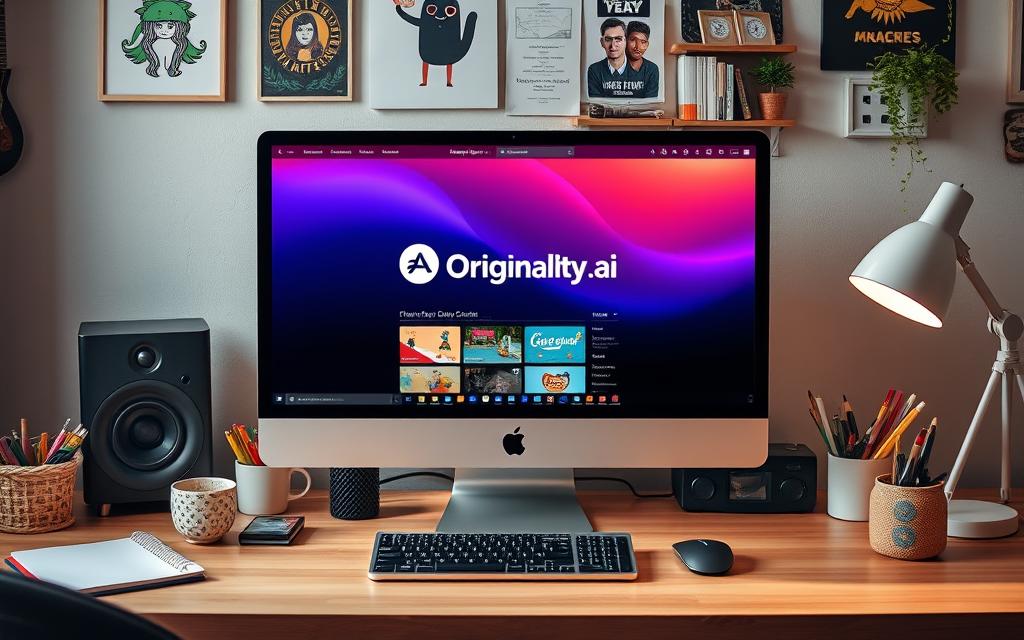
Overview
Originality.ai is a sophisticated tool designed specifically for content creators, offering a robust method for identifying AI-generated content. It evaluates both writing style and context, making it an indispensable asset for ensuring the authenticity of one’s work.
Key Features
The Originality.ai tool boasts several key features that make it stand out. It uses a credit-based pricing model, where costs start at $0.01 per 100 words analysed, making it scalable based on usage volume. Additionally, it offers monthly subscription plans for regular users, providing a set number of credits at discounted rates. Team plans are also available, featuring shared credit pools and collaborative features ideal for content agencies and publications with multiple contributors. Furthermore, Originality.ai provides API access for enterprise customers, enabling seamless integration into content management systems or publishing workflows.
Pros and Cons
One of the significant advantages of Originality.ai is its ability to provide detailed reports, which is particularly beneficial for content creators seeking to verify the originality of their content. However, it’s worth noting that the tool is primarily designed for commercial use, although educational discounts are available for academic institutions.
Pricing
In terms of credit usage, Originality.ai’s pricing model is flexible, catering to various user needs. The availability of different plans ensures that users can choose the one that best suits their requirements, making it a versatile tool for content creators.
Turnitin – Best for Academic Integrity
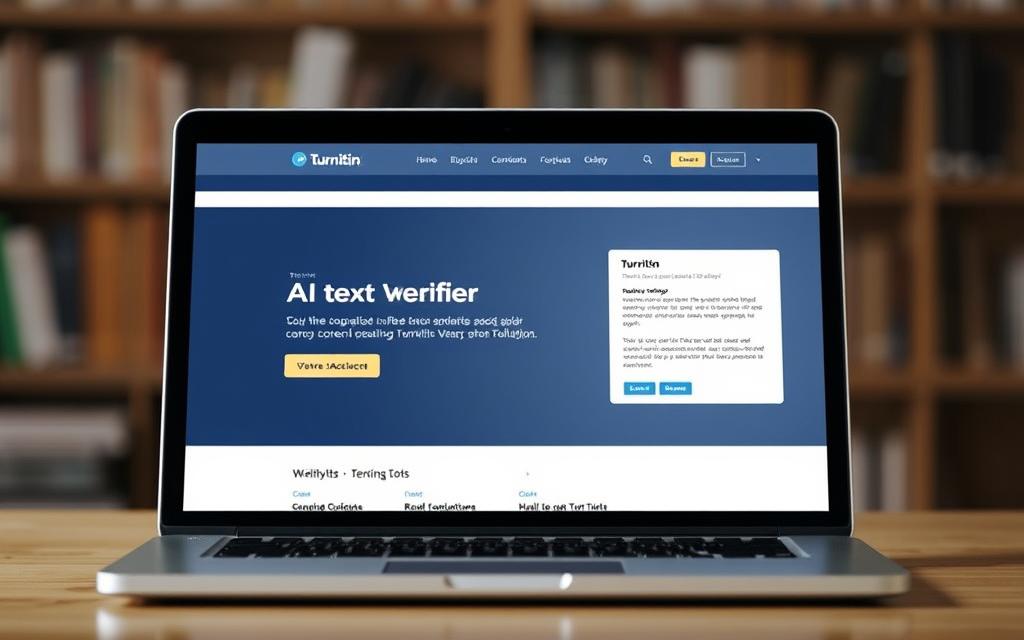
Overview
Turnitin is renowned for its robust academic integrity solutions, trusted by over 30,000 institutions. It has now enhanced its capabilities with an AI Text Verifier feature, significantly improving its ability to screen files and check originality. This tool has become indispensable in educational settings, aiding in the detection of plagiarism and ensuring the authenticity of student submissions.
Key Features
The AI Text Verifier feature is a standout component of Turnitin’s offering, providing advanced plagiarism detection. Additionally, the platform offers comprehensive reporting, allowing teachers to assess student work effectively. Institutions can access a range of features tailored to their needs, from basic to advanced academic integrity suites.
Pros and Cons
One of the primary advantages of Turnitin is its ability to support a large number of students and teachers across various educational levels. However, the pricing model, which is based on student enrollment numbers, can be a drawback for some institutions. Despite this, the tool’s comprehensive features and accuracy make it a valuable asset.
Pricing
Turnitin’s pricing is structured for institutional adoption, with costs varying based on the level of features required. Educational institutions can choose from different packages, and there are special considerations for K-12 schools and smaller institutions. While individual teacher licenses are available, they tend to be more expensive due to the comprehensive nature of the tool.
Copyleaks – Best for Plagiarism and AI Detection

Overview
Copyleaks is a versatile tool that combines advanced plagiarism detection with AI technology to identify content style differences, making it an adaptable solution for various industries.
Key Features
Copyleaks offers a range of features that make it a powerful detection tool. Its capabilities include:
- Advanced plagiarism detection
- AI-powered content analysis
- Support for multiple file formats
- Integration with various educational platforms
These features enable users to thoroughly scan text for any instances of plagiarism or AI-generated content.
Pros and Cons
One of the significant advantages of Copyleaks is its ability to provide accurate detection results. However, some users may find the interface overwhelming due to the vast array of features.
Pros: High accuracy, versatile features, and adaptable to different industries.
Cons: Steep learning curve for some users.
Pricing
Copyleaks offers a free package for basic use, allowing users to test its capabilities before committing to a paid plan. Subscription plans are available at different tiers, with pricing based on the volume of text to be analysed and the specific features required.
- Educational institutions can access special pricing for academic use.
- Enterprise plans include custom features and volume-based discounts for organisations with extensive scanning needs.
- API pricing is available for developers looking to integrate Copyleaks’ detection capabilities into their applications.
Free AI Detector Tools Worth Trying
For those on a budget, several free AI detector tools offer impressive capabilities. These tools can be particularly useful for individuals and organisations looking to verify the authenticity of content without incurring significant costs.
Writer.com AI Detector
The Writer.com AI Detector is a free tool that analyses text to determine if it has been generated by AI. This detector uses advanced algorithms to identify patterns in the text that are indicative of AI-generated content.

Smodin AI Detector
The Smodin AI Detector is another tool worth considering. It provides a free version that allows users to check the authenticity of their text. Smodin’s technology is designed to detect AI-generated content by analysing linguistic patterns.

Crossplag DetectX
Crossplag’s DetectX is a specialised AI detection tool designed for academic contexts. It uses machine learning to analyse human-like writing traits and identify statistical anomalies that suggest AI authorship. The free version provides basic detection capabilities with reasonable usage limits.
- Identifies AI-generated content in academic materials.
- Compares submissions against an extensive database of published materials.
- Provides basic detection capabilities in its free version.
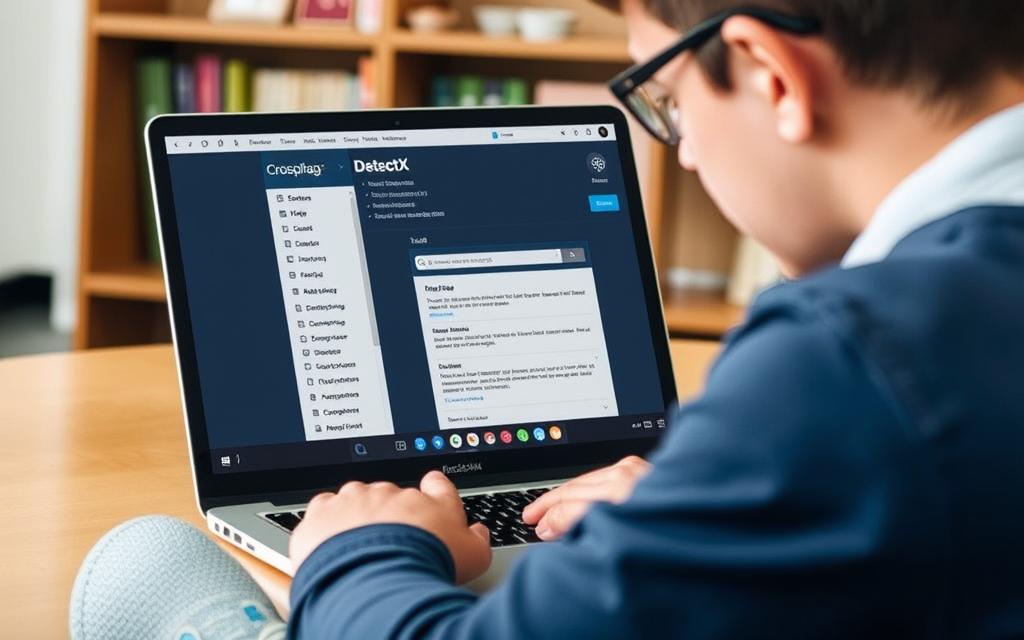
How to Choose the Best AI Detector for Your Needs
Selecting the ideal AI detector tool is crucial for meeting your specific needs. With various options available, it’s essential to consider your requirements carefully.
AI detectors are invaluable tools for educators striving to maintain academic integrity. By offering reliable detection of AI-generated and unoriginal content, these tools help teachers support an honest academic environment.
For Educators and Academic Institutions
Educators should look for AI detectors that provide accurate detection and are user-friendly. Reliable detection is crucial for maintaining academic integrity. Tools like GPTZero are popular among educators due to their high accuracy.
For Content Creators and Publishers
Content creators need AI detectors that can verify the originality of their work. Originality.ai is a popular choice as it provides detailed reports on content authenticity. When choosing a detector, consider its ability to detect AI-generated content accurately.
For Businesses and Organisations
Businesses should consider enterprise-grade AI detectors that offer administrative controls, user management, and reporting features. Key considerations include:
- Flexible deployment options, including cloud-based and on-premises solutions.
- Scalability and pricing models that align with organisational growth.
- Customisation options to meet specific industry requirements.
- Strong customer support and training resources.
| Features | Educators | Content Creators | Businesses |
|---|---|---|---|
| Accuracy | High | High | High |
| Deployment Options | Cloud-based | Cloud-based | Cloud-based/On-premises |
| Customisation | Limited | Limited | High |
By considering these factors and choosing the right AI detector, you can effectively meet your needs and ensure the integrity of your work.
Common Challenges with AI Detectors
The growing complexity of AI-generated content creates new challenges for AI detection tools, making it essential to address these issues. As AI technology innovation accelerates, the use of both generative writing tools and the tools used to detect AI-generated content will continue to be quickly adopted.
Dealing with False Positives
One of the significant challenges faced by AI detection tools is dealing with false positives. This occurs when the tool incorrectly identifies human-generated content as AI-generated. To mitigate this, it’s crucial to understand the detection patterns employed by these tools and their limitations. Users should look for detection tools that demonstrate a commitment to regular updates and continuous improvement to maintain effectiveness over time.
Keeping Up with Evolving AI Models
AI writing models are evolving rapidly, with each new generation becoming more sophisticated at producing human-like text that can evade detection. Detection tools face a constant challenge to update their algorithms and training data to keep pace with these advancements in AI writing technology. For more information on the limitations of current AI detection technology, visit MIT Sloan’s article on AI detectors.
| Challenge | Description | Impact on Detection Tools |
|---|---|---|
| False Positives | Incorrect identification of human-generated content as AI-generated | Reduced accuracy and reliability |
| Evolving AI Models | Rapid advancements in AI writing technology | Increased difficulty in detecting AI-generated content |
| AI “Humanisers” | Tools designed to evade detection by making AI-generated content appear human-like | Additional challenges for detection tools |
Understanding the limitations of current detection technology helps set realistic expectations and encourages supplementing automated detection with human judgment and critical evaluation. By acknowledging these challenges, users can better navigate the complex landscape of AI-generated content and tools.

Ethical Considerations When Using AI Detectors
As AI detection tools become increasingly prevalent, it’s crucial to consider the ethical implications of their use. The deployment of these tools raises important questions about their impact on trust, transparency, and accountability within organisations.
Balancing Detection with Trust
The use of AI detectors can sometimes be perceived as intrusive or overly controlling, potentially eroding trust between organisations and their stakeholders. To mitigate this, organisations should strive to balance the need for detection with the need to maintain trust. This can be achieved by implementing clear policies and communicating them effectively to stakeholders.
For instance, educational institutions should clearly communicate their AI detection policies to students before assignments are submitted, ensuring they understand the expectations regarding AI usage and detection. This transparency helps to build trust and encourages responsible use of AI tools.
Transparency in AI Detection Policies
Transparency is essential when implementing AI detection tools. Organisations should develop clear, transparent policies about how these tools are used and what consequences might result from identified AI-generated content. This includes explaining how detection scores are calculated and interpreted, helping users understand the basis for determinations about content authenticity.
- Organisations should clearly disclose their AI detection practices to stakeholders and explain how detection results factor into decision-making processes.
- Educational institutions should provide students with access to detection reports, allowing them to understand why certain content was flagged and how to address concerns.
- Publishers and content platforms should transparently communicate their AI detection policies to contributors.
By prioritising transparency and trust, organisations can ensure that their use of AI detection tools is both effective and ethical.
The Future of AI Detection Technology
Emerging trends in AI detection are set to revolutionise the way we approach content verification. As AI technology continues to evolve, the need for sophisticated detection tools becomes increasingly paramount.
Emerging Trends and Innovations
Several key trends are shaping the future of AI detection. AI detection is becoming part of broader institutional systems, enabling large-scale monitoring and policy management. Integrated platforms streamline oversight, giving educators and administrators unified control and transparency over AI use in the classroom.
- Increasing integration of AI detection capabilities into broader content management and educational platforms.
- Detection technology will likely become more specialised for different content types and industries.
- The arms race between AI writing and AI detection technologies will continue to accelerate.
What to Expect in the Coming Years
As we look to the future, several developments are anticipated in AI detection. Regulatory frameworks around AI content disclosure may emerge, potentially mandating detection or labeling of AI-generated content in certain contexts. User education about AI detection will become increasingly important.
| Trend | Description | Impact |
|---|---|---|
| Increased Integration | AI detection in content management systems. | Streamlined verification processes. |
| Specialised Detection | Tools optimised for specific content types. | Improved accuracy in diverse contexts. |
| Regulatory Frameworks | Emerging regulations on AI content disclosure. | Mandatory detection and labeling. |
The future of AI detection technology holds much promise, with advancements in detection patterns and tools set to enhance our ability to verify content authenticity.
Conclusion
As we navigate the complexities of AI-generated content, the role of AI detectors becomes increasingly crucial. The need for reliable AI detection tools has never been more pressing, especially in educational institutions, publishing houses, and businesses where content authenticity is paramount.
Our comprehensive evaluation has identified several standout AI detector tools, each excelling in different areas. QuillBot emerges as the best all-in-one solution, while Winston AI boasts the highest accuracy rate in detecting AI-generated text. Other notable mentions include GPTZero for educational institutions and Originality.ai for content creators, underscoring the diversity of needs within the market.
When selecting an AI detector, it’s essential to consider your specific requirements, including the type of content or text you’ll be analysing, budget constraints, and the level of accuracy needed. While these tools are invaluable, it’s also important to remember that they should be part of a broader approach to content verification, complemented by human judgment and clear policies.
As AI writing technology continues to evolve, so too will AI detection capabilities. Staying informed about the latest developments and regularly reassessing your detection tools will be crucial to maintaining effective content verification practices. By doing so, educators, content creators, and organisations can ensure the integrity and authenticity of text in an increasingly AI-driven world.
In conclusion, AI detectors are not just useful but essential tools for anyone concerned with the authenticity of content and text. By choosing the right AI detector and using it as part of a comprehensive verification strategy, we can promote a culture of originality and academic integrity.
FAQ
What is the purpose of using AI detection tools?
The primary purpose of AI detection tools is to identify whether a piece of content, such as text, has been generated using artificial intelligence. These tools help maintain originality and authenticity in various contexts, including education and content creation.
How do AI detection tools work?
AI detection tools analyse the patterns, syntax, and other linguistic features of the given text to determine if it was generated by a human or AI. They often rely on complex algorithms and machine learning models to make this distinction.
Are AI detection tools prone to false positives?
Yes, some AI detection tools can produce false positives, incorrectly identifying human-generated content as AI-generated. The rate of false positives can vary depending on the tool’s sophistication and the complexity of the content being analysed.
Can AI detection tools detect content generated by all types of AI models?
Most AI detection tools are designed to detect content generated by popular AI models. However, their effectiveness can vary when faced with less common or highly advanced AI models. Keeping detection tools updated is crucial for maintaining their effectiveness.
Are there free AI detection tools available?
Yes, there are free AI detection tools available, such as Writer.com AI Detector and Smodin AI Detector. These tools can be useful for individuals or organisations with limited budgets, although they may have limitations compared to paid versions.
How can educators and academic institutions benefit from using AI detection tools?
Educators and academic institutions can use AI detection tools to verify the originality of students’ work, helping to maintain academic integrity. These tools can also aid in teaching students about the importance of original work.
What are the ethical considerations when using AI detection tools?
When using AI detection tools, it’s essential to balance the need for detection with trust in individuals’ work. Transparency about the use of AI detection policies is also crucial to maintain fairness and understanding among all parties involved.
